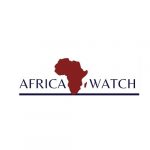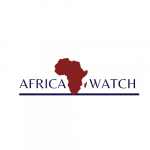In a controversial move, as Reuters reports, Eritrea has tabled a resolution at the United Nations Human Rights Council to terminate the mandate of the UN Special Rapporteur on the situation of human rights in the country. The initiative, if successful, would eliminate one of the few independent mechanisms scrutinizing the Horn of Africa nation’s rights record.
Eritrea’s proposal comes just weeks before the Human Rights Council’s scheduled renewal of the mandate, which has been in place since 2012 due to persistent concerns over arbitrary detention, enforced disappearances, forced labor, and restrictions on freedom of expression.
Rights groups immediately condemned the motion as a blatant attempt to shield the government from international scrutiny. “This is not about sovereignty—it’s about silencing oversight,” said a spokesperson from Human Rights Concern–Eritrea. “The Special Rapporteur has been instrumental in documenting abuses that the government refuses to acknowledge.”
A Decade of Denial
Eritrea has consistently rejected the legitimacy of the UN rapporteur system, refusing entry to Special Rapporteurs and denying allegations of widespread human rights violations. In past reports, UN investigators have documented systematic abuses, including indefinite national service, religious persecution, and suppression of dissent.
While Eritrean officials argue that the mandate is politically motivated and no longer necessary, critics point to continued repression and lack of reforms. Eritrea remains one of the world’s most closed-off states, with no independent press and a judiciary heavily influenced by executive authority.
Violations of the African Charter on Human and Peoples’ Rights
Eritrea’s move to dismantle oversight mechanisms contravenes its obligations under the African Charter:
-
Article 1 (Duty of States): States must take positive steps to protect and promote human rights. Attempting to terminate external monitoring represents a retreat from that duty and undermines the spirit of international cooperation and accountability.
-
Article 9 (Freedom of Expression and Access to Information): Curtailing independent investigations restricts public access to information and prevents citizens and the international community from understanding and addressing rights violations.
The African Commission on Human and Peoples’ Rights has not yet issued a formal response to Eritrea’s motion, but legal experts stress that the Charter requires states to enable rather than obstruct mechanisms that promote transparency.
The vote is expected in early July. Meanwhile, international and African rights organizations are urging member states to reject Eritrea’s resolution and reaffirm the importance of independent scrutiny in upholding global human rights standards.

